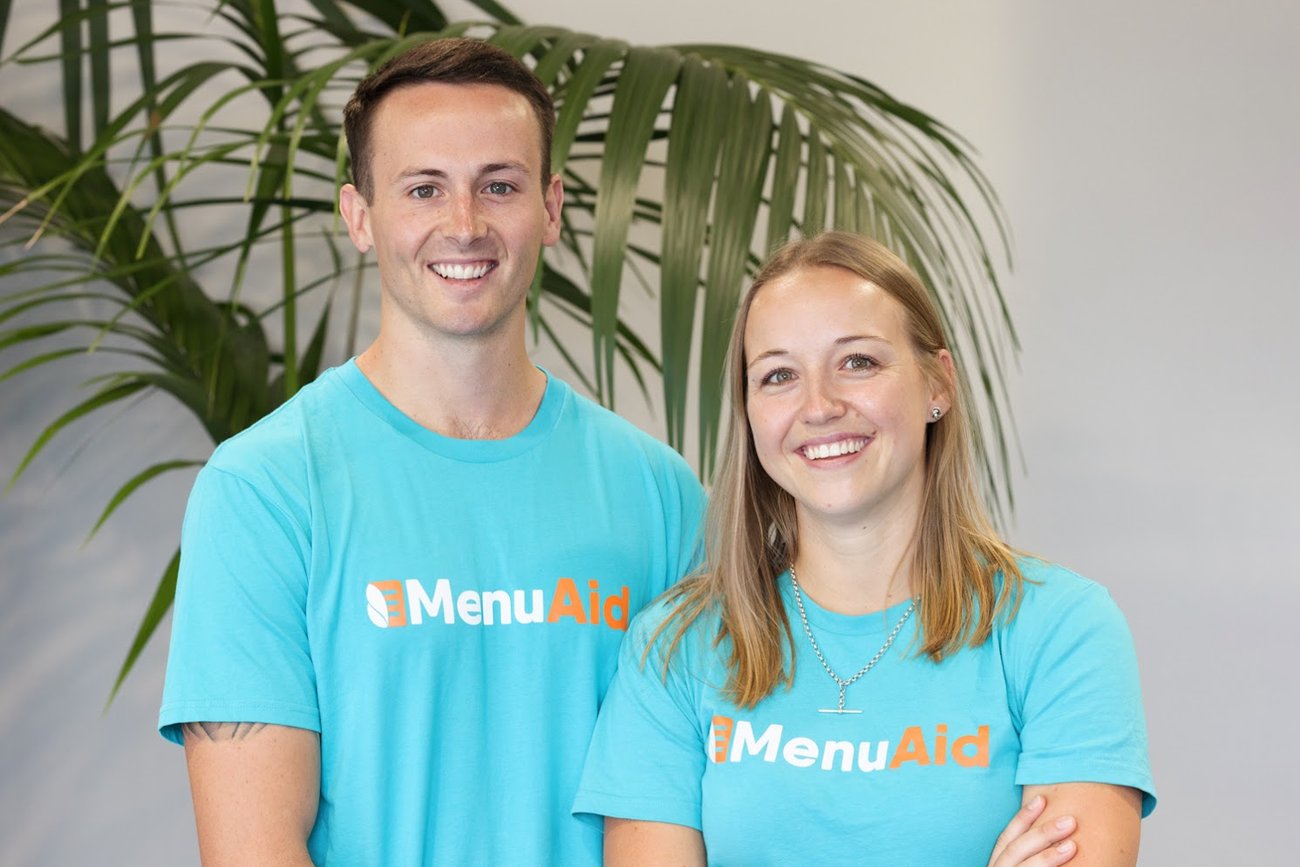
Using artificial intelligence (AI) technology, smart meal planning platform Menuaid is solving the question everyone asks every day – what’s for dinner?
Founders Toby Skilton and Elise Hilliam set up Menuaid in 2021 after they constantly found themselves in an “extreme dinner rut” of preparing the same meals all the time.
Both Skilton and Hilliam thought meal kits were a great idea but found the existing options on the market came with a lot of waste, were expensive, and inflexible for their lifestyle.
While they believed the idea of a meal kit was an excellent concept, they thought it would work better digitally as a recipe inspiration platform to help aid and create a shopping list.
After Menuaid’s initial launch, Skilton and Hilliam realised that customers palettes are extremely different and issuing the same recipes to everyone was not going to work in the long term.
When Skilton and Hilliam first launched Menuaid, they realised customers who sign up later to the platform would miss out on the hundreds of recipes already released.
Thanks to the use of the AI technology, they are now able to reuse recipes and content which opens up a huge area of opportunity for the pair.
“We essentially started market research and looked at industry leaders like Spotify,” says Skilton.
“We wanted to make an equivalent in the food space where we build a platform that is basically a personal shopping assistant that knows your weekly shopping routine and family needs better than you do,” he adds.
Through the use of artificial intelligence, Menuaid is able to elevate its platform to make it a personalised experience for each customer and make “better recommendations every time”.
Skilton adds that they are still in their early days in the personalisation journey, but they are currently building the “foundations and data” of the technology by learning as much as they can about their consumers.

The AI technology is used by gathering data about each user, with the data the AI will build audience groups that have similar interests and recommend recipes to them.
Read more: Creating personalised skincare with AI technology.
Inspired by market leaders Spotify, a platform that aims to satisfy its listeners through recommended music, Menuaid is trying to satisfy its customers by solving the question of what’s for dinner with recipes.
However, being one of the only food platforms that uses AI technology to support their mission has proven difficult, and the founders have faced many challenges.
Skilton says that one of the major difficulties of using AI technology on a food platform is being faced with the customers’ satisfaction level. Despite being inspired by industry leaders such as Spotify, Skilton says the users are completely different, making the job of satisfying its customer a more extreme challenge.
With Spotify, if one user doesn’t like a song recommendation, they are able to skip it at a press of a button, not impacting their satisfaction level drastically.
“If Menuaid suggests you a recipe and you don’t love it, you spent money on the ingredients, you spent time cooking it, the kids are angry, the satisfaction level plummets and it is really hard to win you back from there,” explains Skilton.
“Personalising food is really tricky, and it is really important to manage expectations.”
But Skilton says the technology will continue to grow and will be a constant work in progress as it continues to learn things about Menuaid users.
“[This will bring] less guesswork which ultimately means people who use our platform get more value.”
The future for Menuaid is still bright as it reaches its first birthday. Currently sitting on 9-10 thousand users, the team would like to have 100,000 users on the platform by next year.
In the future, Skilton hopes Menuaid can reach “other cultures beyond New Zealand”.
“Fortunately for us, but unfortunately for everyone else, this problem is felt globally. Logically it makes sense to move to the States. That’s where our biggest opportunity is as it is a huge market,” he says.




